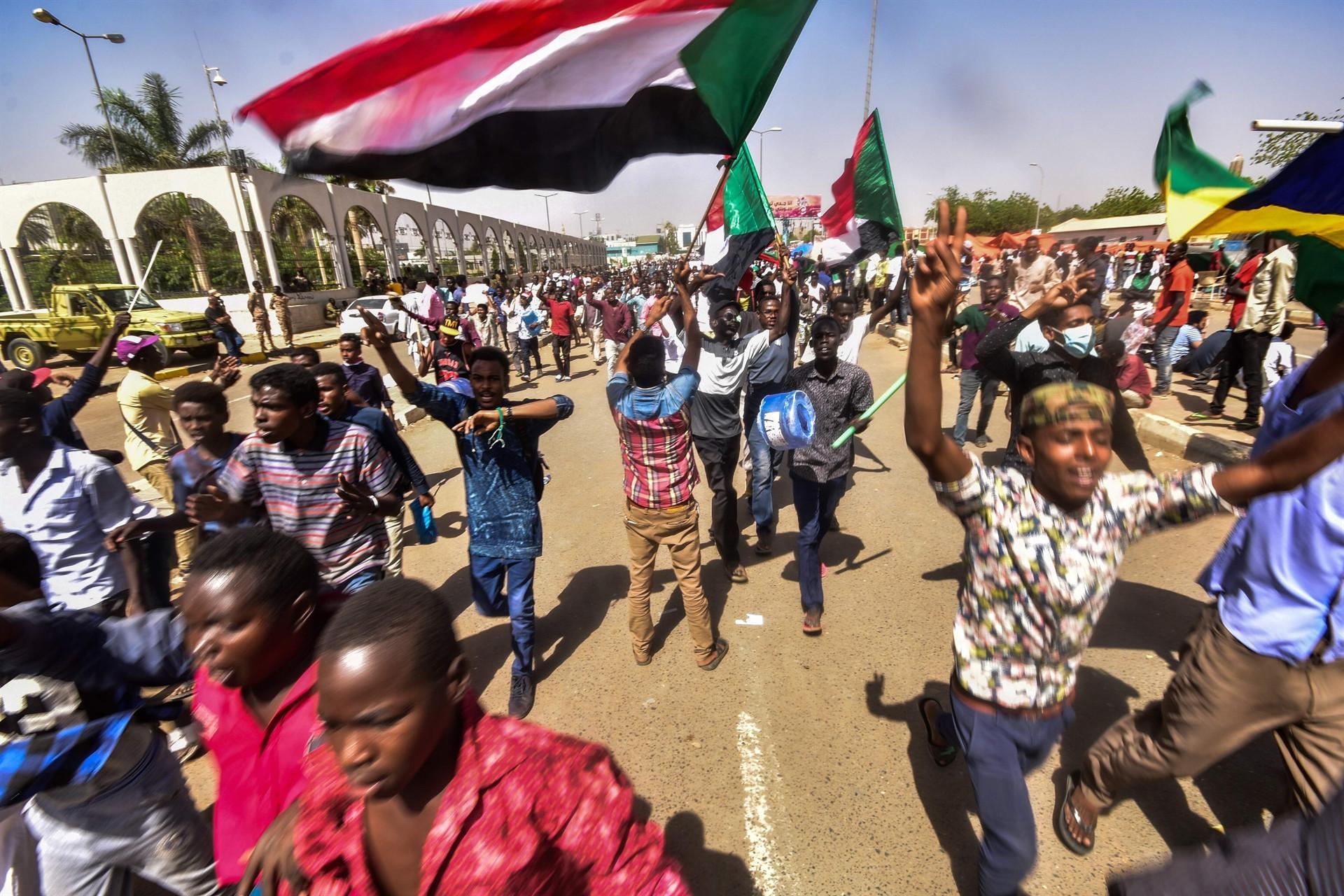
Defense Minister Awad Ibn Auf stepped down as head of the transitional military council late on April 12 after only a day in the post, as protesters demanded faster political change.
Celebrations erupted on the streets of Khartoum, where thousands of protesters waved flags and illuminated mobile phones in the darkness and drivers hooted car horns. People chanted: "The second has fallen!" a reference to Ibn Auf and Bashir, witnesses said.
The Sudanese Professionals Association (SPA), which has been leading the protests, called for more demonstrations on April 13.
"Today, we continue the march to finish the victory for our victorious revolution," the SPA said in a statement.
"We assert that our revolution is continuing and will not retreat or deviate from its path until we achieve ... our people's legitimate demands of handing over power to a civilian government," it said.
The new head of the military council, Lieutenant General Abdel Fattah al-Burhan Abdelrahman, is a commander believed to be more ready to talk to demonstrators.
Burhan was the third most senior general in the Sudanese armed forces and is little known in public life. As head of Sudan's ground forces he oversaw Sudanese troops fighting in the Saudi-led Yemen war and has close ties to senior Gulf military officials.
The military council said earlier it expected a pre-election transition to last two years at most or less if chaos could be avoided. The head of the military council's political committee, Omar Zain al-Abideen, said the council would hold a dialogue with political groups.
The announcement appeared aimed at reassuring demonstrators who had pressed for months for Bashir's departure and resumed protests against army rule after his ouster on Thursday, calling for quicker and more substantial change.
Bashir, 75, seized power in a 1989 military coup. He had faced 16 weeks of demonstrations brought on by rising food costs, high unemployment and increasing repression during his three decades in power.